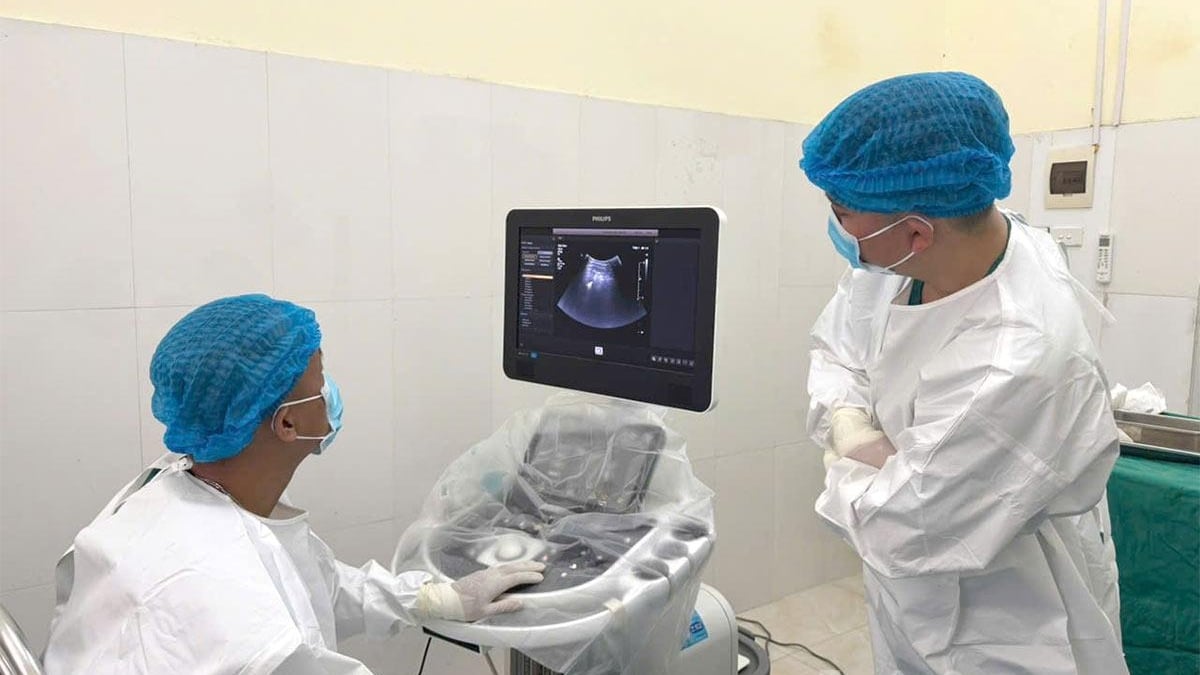Surgery sometimes affects the muscles, nerves, brain, and spinal cord, interrupting signals to the urinary system, leading to urinary retention.
Postoperative urinary retention refers to difficulty urinating after surgery, despite a full bladder. Symptoms of urinary retention include: difficulty urinating or not being able to urinate; bladder pain or discomfort; bladder spasms; abdominal swelling. However, many people with urinary retention do not experience any symptoms.
Many muscles, nerves, the brain, and the spinal cord work together to help a person urinate. Sometimes surgery affects this system and temporarily disrupts it. Patients may use a catheter or take medication to help drain the bladder.

Post-operative urinary retention is uncomfortable for patients but can be treated. Photo: Freepik
Some factors that cause urinary retention after surgery include:
Anesthesia: Anesthetic drugs paralyze muscles or nerves so that the body cannot sense when the bladder is full.
Inflammation or blockage: Surgery to the abdomen, pelvis, or any part of the urinary system or surrounding organs, tissues, or nerves can cause inflammation, making it difficult to urinate. Spinal cord surgery can also cause problems with the nerves that control urination. People who have had surgery on their knees, hips, or colon are at higher risk for urinary retention.
Medications: Pain medications, especially strong opioids or used in high doses, can cause urinary retention. Like anesthesia, they paralyze certain muscles and nerves. These medications can also cause constipation, putting pressure on the urethra, making it harder to urinate.
The rate of urinary retention after surgery ranges from 5 to 70 percent, depending on the type of surgery. In addition, some factors that can affect the urinary tract include: age (older people have a higher risk of urinary retention after surgery); gender (men have a higher risk than women). Other conditions such as diabetes, kidney failure, benign prostatic hyperplasia, and mental health conditions such as depression also increase the risk. Your surgeon will help you better understand the risks based on the type of surgery performed and other factors.
To control urinary retention after surgery, your doctor may recommend a urinary catheter. Some people only need a catheter for a short time while they are in the hospital, while others may need to use it until the problem is resolved, even after they are discharged from the hospital.
Alpha blockers are medications that relax the urethra, making it easier for the bladder to empty and empty. These medications are sometimes used in conjunction with a catheter. Some people find that taking a warm bath or applying a warm compress to the abdomen helps relieve mild urinary retention.
According to medical experts, urinary retention usually goes away on its own within 4 to 6 weeks. In some cases, it may take a little longer or shorter. If the condition does not go away after a month or so, or if it begins to limit your quality of life, causes your bladder to fill for more than 7 hours, or causes severe pain, contact your doctor.
Zhao Wei ( According to Healthline )
Source link




























![[Photo] Signing of cooperation between ministries, branches and localities of Vietnam and Senegal](https://vphoto.vietnam.vn/thumb/1200x675/vietnam/resource/IMAGE/2025/7/24/6147c654b0ae4f2793188e982e272651)







































































Comment (0)